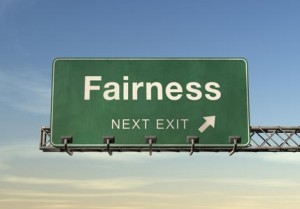The Concept of Fairness
Jin Kong is a guest research fellow with The Greater Cincinnati World Affairs Council (GCWAC) for the next six months. This fellowship is sponsored by The Mission Continues. Through this fellowship, Kong is researching to gain a better understanding of the populist sentiment towards immigrants in the Cincinnati region. This is one blog of many on his research of immigration and Cincinnati. To learn more about Jin Kong click here.
Audi alteram partem
“This country needs them, and why not offer them the refuge, and while helping them from the depths aid in the upbuilding and the development of our own agricultural resources?”
– Cincinnati Enquire, Op-Ed: Homes for Belgian and French Refugees. Oct 26, 1914.
Fairness is an interesting concept. It is a philosophical mirage. We all want it and demand it from others; yet we love to say, “life isn’t fair.”

What exactly is fairness? A brash definition suggests giving due according to contribution; but it is much more complicated when it is the subject of an inquiry; because there are many shades of fairness.
Most straightforward is the idea of absolute equality: that everyone gets the same share. This means the elderly would not get a discount, the expected mother would not get parking next to the door, and veterans would not get a free meal on Veterans’ Day. Everyone is flying economy, no business class luxuries. It is harsh, the disabled would get no accommodation; if you are blind or born disabled, too bad.
A slightly more humane view of fairness involves a bit more math. How much does a person put in is what that person deserves. It is meritocracy; the smartest, most talented, hardest working, and the most diligent are rewarded because of their attributes. If you are lazy, inept, or born with a learning disability, again, too bad. But we all know a true meritocracy does not exist.
A third alternative suggests fairness should be based on need. Our obligation to one another is a bargain for creating a community. We do our best to establish a social compact for the greatest good. Fairness involves putting up a “veil of ignorance” and ask the impossible question that if we did not know whether we are in need or in the position to help, what would we do?
But the veil of ignorance is an impossible task, so we created the concept of charity to justify its existence. From charity we recognize guilt and apathy; then the real fun began—because we use fairness to also justify our guilty apathetic ways. It’s like the proof for god’s existence, circular and mind-numbing; yet useful to our presumptuous self-interest and -importance.
“Those sneaking in merely to work, send money home and eventually return or, at least, live in a non-assimilating group – this group seem to be the major source of objection to so-called immigrants.”
– Cincinnati Enquirer, Op-Ed: Lack of Enforcement Led to Immigration Crisis. April 12, 2006.
“The people of Cincinnati may find out when it is too late what Coolie immigration means. It means a general and hopeless poverty among the white working classes. It is simply impossible for white people to compete with these reptiles and retain self-respect. The Chinaman is simply a parasite that sucks the financial life-blood from those who are least able to bear the loss individually, and is a tremendous detriment to the whole community.”
– Cincinnati Enquirer, Op-Ed: The Bloody Chinese. January 22, 1880.
Fairness is interesting because it underlines our immigration debate. Majority of the editorials and op-eds on the topic of immigration proffers opinion or argument suggesting fairness implicitly or explicitly. The most common themes in these editorials and op-eds even come from immigrants themselves:
“I had to work hard to get my residency, and refused to work until I had my work permit. I battled my way through hours and hours of English lessons until I was proficient enough to earn a master’s degree in biotechnology from Johns Hopkins University. I had to work my tail off—and now I have to read about thousands of illegal immigrants protesting in the streets, waving Mexican and Venezuelan flags, demanding their rights?”
– Cincinnati Post, Op-Ed: A Legal Immigrant Argues for Following the Rules. April 4, 2006.
But all of this reminded me of something I learned in high school: “He who decides a case with the other side unheard, though he decide justly, is himself unjust.” And perhaps my teachers were trying to really teach me something back then.
The blog is in part of the Mission Continues blog series, written by Jin Kong and therefore all words and thoughts are his own and not a reflection of GCWAC.


